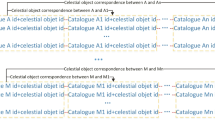Abstract
In order to facilitate the repetition, deduction and playback of the problems in the test process, the corresponding requirements for the retention of test data are put forward in the current test process of spacecraft data management software. In order to deal with the operation based on data itself and the higher level of extraction and analysis based on data, the use of database to store data has become the highest performance and the most convenient way. Due to the large amount of test data, using a single table storage method can cause the time of data query to increase rapidly until it is unacceptable. However, several commonly used table partitioning methods also have their own defects which make it difficult to apply in this scenario. In this paper, a dynamic hashing method (DSH algorithm) is proposed to partition the data according to the characteristics of generating and using the test data of spacecraft data management. The data is hashed through partitioning process feedback to ensure the bias balance of queue hashing. The dynamic partitioning method ensures that the partition fragmentation is controllable and the number of partitions is reduced. It improves the speed of data storage and query, and improves the efficiency of storage space. So that in the same hardware platform, running a larger and more complex tube software testing work provides a stable and reliable solution.
Access this chapter
Tax calculation will be finalised at checkout
Purchases are for personal use only
Similar content being viewed by others
References
Aumasson, J.-P., Bernstein, D.J.: SipHash: a fast short-input PRF (2012)
Wang, Z., Zhang, H., Qin, Z., Meng, Q.: Fast attack algorithm on the MD5 hash function (2006)
Liang, J., Lai, X.: Improved collision attack on hash function MD5 (2007)
Teh, J.S., Samsudin, A., Akhavan, A.: Parallel chaotic hash function based on the shuffle- exchange network. Nonlinear Dynamics (2015)
Kim, D.-C., Hong, D., Lee, J.-K., Kim, W.-H., Kwon, D.: LSH: a new fast secure hash function family. In: Lee, J., Kim, J. (eds.) ICISC 2014. LNCS, vol. 8949, pp. 286–313. Springer, Cham (2015). https://doi.org/10.1007/978-3-319-15943-0_18
Author information
Authors and Affiliations
Editor information
Editors and Affiliations
Rights and permissions
Copyright information
© 2022 ICST Institute for Computer Sciences, Social Informatics and Telecommunications Engineering
About this paper
Cite this paper
Cheng, H., Fan, Y. (2022). A Dynamic Hashing Method for Storage Optimization of Spacecraft Verification Database. In: Guo, Q., Meng, W., Jia, M., Wang, X. (eds) Wireless and Satellite Systems. WiSATS 2021. Lecture Notes of the Institute for Computer Sciences, Social Informatics and Telecommunications Engineering, vol 410. Springer, Cham. https://doi.org/10.1007/978-3-030-93398-2_16
Download citation
DOI: https://doi.org/10.1007/978-3-030-93398-2_16
Published:
Publisher Name: Springer, Cham
Print ISBN: 978-3-030-93397-5
Online ISBN: 978-3-030-93398-2
eBook Packages: Computer ScienceComputer Science (R0)




